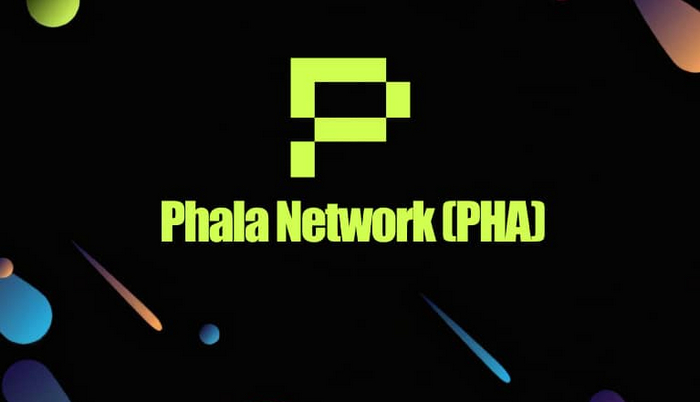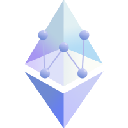-
 Bitcoin
Bitcoin $94,243.0739
-0.47% -
 Ethereum
Ethereum $1,808.8084
-0.99% -
 Tether USDt
Tether USDt $1.0005
0.02% -
 XRP
XRP $2.1748
-2.46% -
 BNB
BNB $599.9290
-0.66% -
 Solana
Solana $147.9874
-2.59% -
 USDC
USDC $0.9999
0.01% -
 Dogecoin
Dogecoin $0.1808
-3.17% -
 Cardano
Cardano $0.7019
-3.96% -
 TRON
TRON $0.2511
1.93% -
 Sui
Sui $3.6367
1.97% -
 Chainlink
Chainlink $14.6166
-3.60% -
 Avalanche
Avalanche $22.3546
-1.24% -
 Stellar
Stellar $0.2856
-3.36% -
 UNUS SED LEO
UNUS SED LEO $9.0068
-0.49% -
 Toncoin
Toncoin $3.2934
1.20% -
 Shiba Inu
Shiba Inu $0.0...01385
-5.45% -
 Hedera
Hedera $0.1894
-3.58% -
 Bitcoin Cash
Bitcoin Cash $353.3000
-4.45% -
 Polkadot
Polkadot $4.1483
-4.03% -
 Litecoin
Litecoin $85.7893
-2.04% -
 Hyperliquid
Hyperliquid $17.5418
-3.59% -
 Dai
Dai $1.0000
-0.01% -
 Bitget Token
Bitget Token $4.3983
-1.31% -
 Ethena USDe
Ethena USDe $0.9995
-0.02% -
 Pi
Pi $0.6378
-2.04% -
 Monero
Monero $229.0523
0.19% -
 Pepe
Pepe $0.0...09070
-4.66% -
 Uniswap
Uniswap $5.7465
-3.55% -
 Aptos
Aptos $5.5280
-1.34%
How to get PHA coins? This article teaches you how to get PHA coins
PHA tokens can be obtained through cryptocurrency exchanges, staking, providing cloud services, contributing to network development, or participating in airdrops and giveaways.
Oct 31, 2024 at 01:08 pm

How to Get PHA Coins
PHA (Phala Network) is a decentralized, confidential cloud computing platform built on the Polkadot network. Its native PHA token is used for governance, staking, and paying for resources on the network. Here's a guide on how to obtain PHA coins:
1. Buy on a Cryptocurrency Exchange
- Register with a reputable cryptocurrency exchange that supports PHA, such as Binance, Huobi, or KuCoin.
- Complete the registration process and provide KYC (Know-Your-Customer) verification if necessary.
- Deposit funds into your exchange account using a supported payment method (e.g., fiat currency, Bitcoin, Ethereum).
- Find the PHA trading pair (e.g., PHA/USDT) and place a buy order.
2. Participate in PHA Staking
- Transfer PHA coins to a compatible staking platform or wallet (e.g., PolkaWallet, Talisman).
- Choose a validator to stake your coins with. Validators are responsible for securing the Phala Network.
- Start staking by locking up your PHA coins for a certain period (e.g., 30 days, 180 days).
- Earn rewards in the form of PHA tokens based on the amount of PHA staked and the duration of staking.
3. Provide Cloud Computing Services
- Become a cloud service provider on the Phala Network and offer your computing resources to dApps.
- Rent out your computing power to dApps that need confidential storage and compute services.
- Earn PHA coins as payment for providing cloud services.
4. Contribute to Phala Network Development
- Join the Phala Network community and contribute to its development by reporting bugs, providing feedback, or creating tools and applications.
- The Phala team may reward community members with PHA tokens for their contributions.
5. Airdrops and Giveaways
- Participate in Phala Network airdrops and giveaways organized by the team or community members.
- Follow Phala Network's social media channels and community forums to stay updated on potential airdrop and giveaway opportunities.
Disclaimer:info@kdj.com
The information provided is not trading advice. kdj.com does not assume any responsibility for any investments made based on the information provided in this article. Cryptocurrencies are highly volatile and it is highly recommended that you invest with caution after thorough research!
If you believe that the content used on this website infringes your copyright, please contact us immediately (info@kdj.com) and we will delete it promptly.
- Bitcoin (BTC) Price Stabilizes Above $94K and Confirms Breakout to $106K
- 2025-04-27 17:10:12
- Bitcoin (BTC) price action has been quite outstanding going into the weekend
- 2025-04-27 17:10:12
- Bitcoin (BTC) Is Currently Trading at a 40% Discount to Its Intrinsic Value
- 2025-04-27 17:05:13
- Crypto Banking Unleashed: Fed Joins Regulators in Crushing Old Guard Restrictions
- 2025-04-27 17:05:13
- Troller Cat ($TCAT) May Be Your Ticket to the Moon
- 2025-04-27 17:00:12
- As the crypto market evolves, competition among altcoins intensifies
- 2025-04-27 17:00:12
Related knowledge

What is Ethereum’s Slashing mechanism and how to punish malicious behavior?
Feb 20,2025 at 03:08am
Key PointsOverview of slashingDifferent types of slashing in EthereumIncentives and consequences of slashingIdentifying and reporting slashed validatorsOngoing discussions and potential improvementsEthereum's Slashing Mechanism: Punishing Malicious BehaviorEthereum's slashing mechanism is an essential tool for ensuring network security and punishing mal...

What is the verifier node of Ethereum and how to become a verifier?
Feb 19,2025 at 06:00pm
The Verifier Node of Ethereum: A Comprehensive GuideKey Points:What is a Verifier Node?How to Become a Verifier NodeResponsibilities and Rewards of a Verifier NodeMinimum Requirements for Becoming a Verifier NodePotential Difficulties in Running a Verifier Node1. What is a Verifier Node?A Verifier Node is an independent entity on the Ethereum network th...

What is Ethereum’s staking, and how to participate and earn money?
Feb 19,2025 at 04:37pm
Key Points:Understanding Ethereum's Staking MechanismSteps to Participate in StakingBenefits and Rewards of StakingSecurity and Risk ConsiderationsTechnical Requirements and Hardware OptionsPotential Challenges and Troubleshooting TipsFAQs on Ethereum StakingWhat is Ethereum's Staking?Proof-of-Stake (PoS) is a consensus mechanism used in blockchain netw...

What is Ethereum’s DAO (Decentralized Autonomous Organization) and how does it work?
Feb 20,2025 at 03:12am
Key PointsDefinition and Structure of a DAOGovernance and Decision-Making in DAOsBenefits and Use Cases of DAOsChallenges and Limitations of DAOsWhat is Ethereum's DAO (Decentralized Autonomous Organization) and How Does It Work?Definition and Structure of a DAOA Decentralized Autonomous Organization (DAO) is an innovative governance and management fram...

What is Ethereum's multi-signature wallet and how to improve security?
Feb 20,2025 at 02:18pm
Key Points:Understanding the Concept of a Multi-Signature WalletBenefits and Drawbacks of Multisig WalletsRequirements for Setting Up a Multisig WalletStep-by-Step Guide to Generating a Multisig WalletImplementing Strategies for Enhanced Security1. Understanding the Concept of a Multi-Signature WalletA multi-signature (multisig) wallet in the Ethereum e...

What is Ethereum's oracle and how to provide data for smart contracts?
Feb 21,2025 at 01:30am
Key Points:Understanding the concept of oracles in EthereumExploring different types of oraclesDetailed guide on how to provide data for smart contractsAddressing potential challenges and considerationsWhat is Ethereum's Oracle?Oracles are crucial components in the Ethereum ecosystem, enabling smart contracts to access real-world data and off-chain even...

What is Ethereum’s Slashing mechanism and how to punish malicious behavior?
Feb 20,2025 at 03:08am
Key PointsOverview of slashingDifferent types of slashing in EthereumIncentives and consequences of slashingIdentifying and reporting slashed validatorsOngoing discussions and potential improvementsEthereum's Slashing Mechanism: Punishing Malicious BehaviorEthereum's slashing mechanism is an essential tool for ensuring network security and punishing mal...

What is the verifier node of Ethereum and how to become a verifier?
Feb 19,2025 at 06:00pm
The Verifier Node of Ethereum: A Comprehensive GuideKey Points:What is a Verifier Node?How to Become a Verifier NodeResponsibilities and Rewards of a Verifier NodeMinimum Requirements for Becoming a Verifier NodePotential Difficulties in Running a Verifier Node1. What is a Verifier Node?A Verifier Node is an independent entity on the Ethereum network th...

What is Ethereum’s staking, and how to participate and earn money?
Feb 19,2025 at 04:37pm
Key Points:Understanding Ethereum's Staking MechanismSteps to Participate in StakingBenefits and Rewards of StakingSecurity and Risk ConsiderationsTechnical Requirements and Hardware OptionsPotential Challenges and Troubleshooting TipsFAQs on Ethereum StakingWhat is Ethereum's Staking?Proof-of-Stake (PoS) is a consensus mechanism used in blockchain netw...

What is Ethereum’s DAO (Decentralized Autonomous Organization) and how does it work?
Feb 20,2025 at 03:12am
Key PointsDefinition and Structure of a DAOGovernance and Decision-Making in DAOsBenefits and Use Cases of DAOsChallenges and Limitations of DAOsWhat is Ethereum's DAO (Decentralized Autonomous Organization) and How Does It Work?Definition and Structure of a DAOA Decentralized Autonomous Organization (DAO) is an innovative governance and management fram...

What is Ethereum's multi-signature wallet and how to improve security?
Feb 20,2025 at 02:18pm
Key Points:Understanding the Concept of a Multi-Signature WalletBenefits and Drawbacks of Multisig WalletsRequirements for Setting Up a Multisig WalletStep-by-Step Guide to Generating a Multisig WalletImplementing Strategies for Enhanced Security1. Understanding the Concept of a Multi-Signature WalletA multi-signature (multisig) wallet in the Ethereum e...

What is Ethereum's oracle and how to provide data for smart contracts?
Feb 21,2025 at 01:30am
Key Points:Understanding the concept of oracles in EthereumExploring different types of oraclesDetailed guide on how to provide data for smart contractsAddressing potential challenges and considerationsWhat is Ethereum's Oracle?Oracles are crucial components in the Ethereum ecosystem, enabling smart contracts to access real-world data and off-chain even...
See all articles























































































